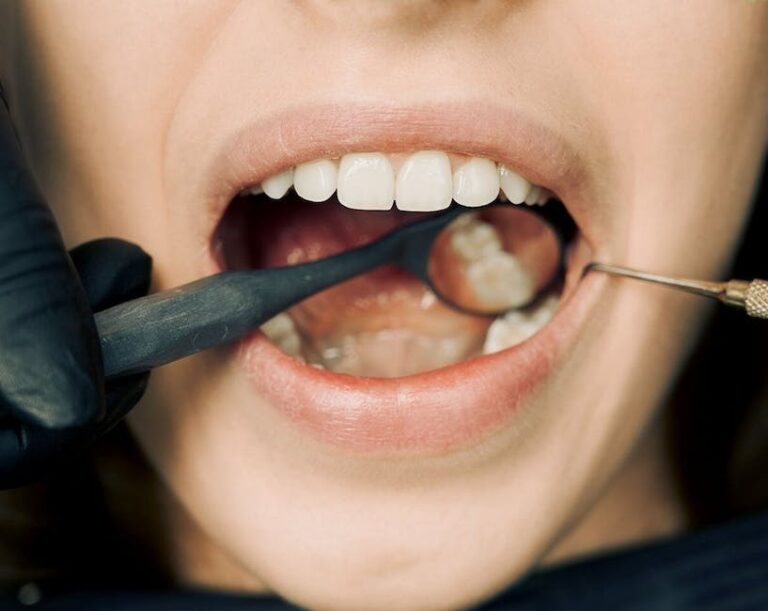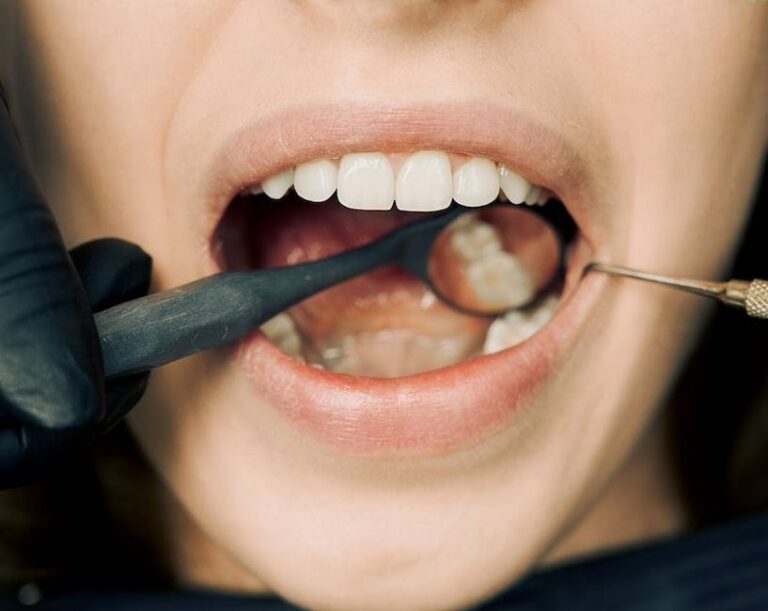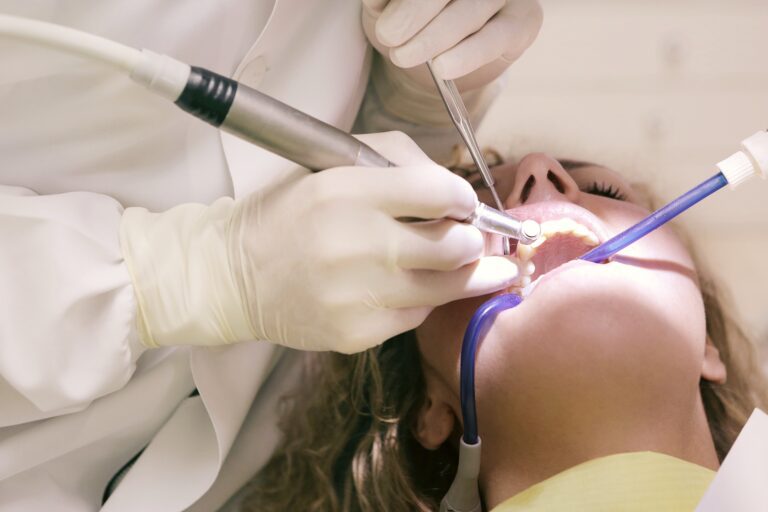Achieving Excellent Dental Health Through Daily Habits
Welcome to our blog! Achieving excellent dental health is not just about regular visits to the dentist, but also about maintaining daily habits that promote a healthy smile. From proper brushing techniques to implementing a balanced diet, there are numerous factors that contribute to optimal dental hygiene. Let’s find out in detail in the article below how these daily habits can make a significant difference in the long run. Let’s find out exactly what steps you can take to ensure your dental health is in top-notch condition. I’ll tell you exactly how you can achieve that perfect smile!
Top Title: Achieving Excellent Dental Health Through Daily Habits
The Importance of Daily Habits for Optimal Dental Health
Maintaining excellent dental health requires more than just regular visits to the dentist. While professional dental care is essential, it is equally important to establish and maintain daily habits that promote a healthy smile. These habits can make a significant difference in the long run and contribute to the overall health of your teeth and gums.
By implementing simple yet effective daily habits, you can achieve optimal dental health and enjoy a beautiful smile for years to come.
Proper Brushing Techniques for a Healthy Smile
One of the most important daily habits for maintaining excellent dental health is proper brushing techniques. Brushing your teeth at least twice a day, preferably after meals, helps remove plaque and bacteria from the surface of your teeth and gums.
To ensure effective cleaning, use a soft-bristled toothbrush and fluoride toothpaste. Hold the brush at a 45-degree angle to your gums and brush in a circular motion. Brush all surfaces of your teeth, including the outer, inner, and chewing surfaces. Don’t forget to brush your tongue as well, as it harbors bacteria that can contribute to bad breath.
Remember to replace your toothbrush every three to four months or sooner if the bristles become frayed. Using an old toothbrush can be ineffective and may not provide adequate cleaning.
The Importance of Flossing and Mouthwash
In addition to regular brushing, daily flossing and mouthwash use are crucial for maintaining optimal dental health. Flossing helps remove food particles and plaque from areas that your toothbrush cannot reach, such as between your teeth and along the gumline.
When flossing, gently guide the floss between your teeth and move it up and down in a C-shaped motion. Be sure to reach below the gumline but avoid applying too much pressure, as this can cause gum irritation.
Using a mouthwash after brushing and flossing can enhance your oral hygiene routine. It helps to rinse away any remaining debris and kills bacteria that can cause bad breath and gum disease. Choose a mouthwash that is alcohol-free and contains fluoride for an extra boost in cavity prevention.
The Role of a Balanced Diet in Dental Health
What you eat not only affects your overall health but also plays a significant role in your dental health. Adopting a balanced diet that is rich in nutrients can help promote strong teeth and gums.
Include foods that are high in calcium, such as dairy products, leafy greens, and almonds. Calcium is essential for maintaining strong teeth and jawbones. Incorporate vitamin-rich fruits and vegetables into your meals as well, as they provide antioxidants and other nutrients that promote gum health.
Avoid consuming excessive sugary and acidic foods and beverages, as they can contribute to tooth decay and erosion. If you do indulge in sweets or acidic drinks, make sure to brush your teeth afterward or rinse your mouth with water to minimize their damaging effects.
Top Title: Daily Habits for Optimal Dental Health
Regular Dental Check-ups and Cleanings
While daily habits are crucial, they are not a substitute for professional dental care. Regular dental check-ups and cleanings are essential for maintaining optimal dental health. Your dentist can detect any potential issues early on and provide appropriate treatment to prevent them from worsening.
During a dental check-up, your dentist will examine your teeth, gums, and mouth for any signs of decay, gum disease, or other oral health conditions. They may also perform a professional cleaning to remove stubborn plaque and tartar buildup.
Depending on your dental health, your dentist may recommend check-ups every six months or more frequently if you have specific oral health concerns.
Avoid Tobacco and Limit Alcohol Consumption
In addition to daily habits, avoiding tobacco and limiting alcohol consumption are crucial for maintaining optimal dental health. Smoking or using tobacco products increases the risk of oral cancer, gum disease, tooth loss, and other dental problems.
Alcohol, when consumed in excess, can also have detrimental effects on your oral health. It can cause dry mouth, which increases the risk of tooth decay and gum disease. Limiting alcohol consumption and practicing moderation can help protect your dental health.
If you are a smoker or excessive alcohol consumer, seek support and guidance from your healthcare provider to quit smoking or reduce your alcohol intake. They can provide resources and strategies to help you achieve and maintain a healthier lifestyle.
Stress Management and Oral Health
Managing stress is essential not only for your overall well-being but also for your dental health. High levels of stress can contribute to teeth grinding, also known as bruxism, which can cause tooth damage, jaw pain, and headaches.
Engaging in stress-reducing activities such as exercise, meditation, and deep breathing exercises can help alleviate stress and protect your teeth and gums. Additionally, wearing a custom-made mouthguard at night can prevent damage caused by teeth grinding.
Children’s Dental Health and Education
Instilling proper dental habits from a young age is crucial for lifelong dental health. Teach your children the importance of brushing their teeth twice a day, flossing, and maintaining a healthy diet. Encourage regular dental check-ups and educate them about the role of dental health in their overall well-being.
Children should visit the dentist by their first birthday or within six months of getting their first tooth. Early dental visits help establish a positive relationship with the dentist and detect any potential issues early on.
It is also essential to supervise your child’s brushing and flossing until they have the coordination to do it effectively on their own. Provide them with toothbrushes and toothpaste that are age-appropriate and make oral hygiene a fun and rewarding experience.
In conclusion, achieving excellent dental health requires consistent daily habits that prioritize oral hygiene and overall well-being. By following proper brushing techniques, flossing regularly, and maintaining a balanced diet, you can significantly improve your dental health. Alongside these habits, it’s essential to visit your dentist regularly, avoid tobacco, limit alcohol consumption, manage stress, and educate children about dental care. With these practices in place, you can achieve a healthy smile and maintain optimal dental health for a lifetime.
Additional Information
1. Regular dental check-ups and cleanings are essential for maintaining optimal dental health. Your dentist can detect any potential issues early on and provide appropriate treatment to prevent them from worsening.
2. Avoiding tobacco and limiting alcohol consumption are crucial for maintaining optimal dental health. Smoking or using tobacco products increases the risk of oral cancer, gum disease, tooth loss, and other dental problems.
3. Managing stress is essential not only for your overall well-being but also for your dental health. High levels of stress can contribute to teeth grinding, also known as bruxism, which can cause tooth damage, jaw pain, and headaches.
4. Instilling proper dental habits from a young age is crucial for lifelong dental health. Teach your children the importance of brushing their teeth twice a day, flossing, and maintaining a healthy diet.
5. Children should visit the dentist by their first birthday or within six months of getting their first tooth. Early dental visits help establish a positive relationship with the dentist and detect any potential issues early on.






